19 Jul2019
By Katrina Norfleet
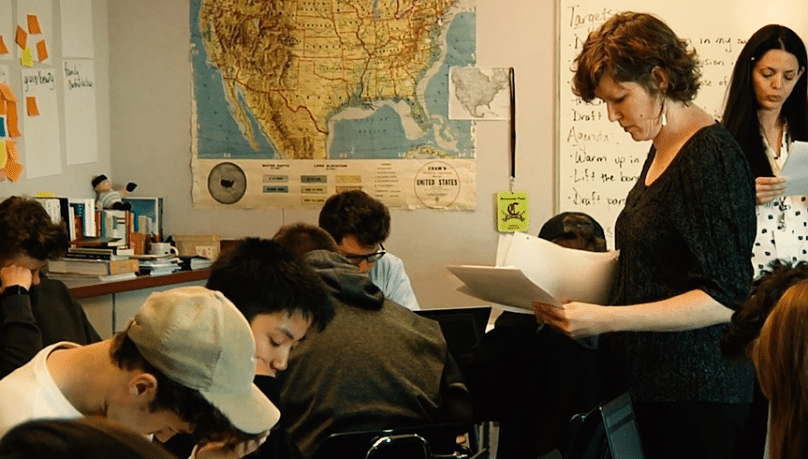
One of the key components of Portland State University’s (PSU) Secondary Dual Education Program is its success in developing and sustaining partnerships with local school districts.
Marvin Lynn, dean of the Graduate School of Education at PSU, shares how the program prepares secondary education teacher candidates to bring content knowledge and “the knowledge that special education teachers have to bare about the learning process and about how to work with these unique populations” to local schools.
Educators like Ana Capac, a special education teacher at Evergreen High School, specifically ask for student teachers from the PSU program because of the mindsets and approaches they bring to the classroom and community. “It is really important that I’m supporting both the student teachers I’m working with on how they are developing this mindset of inclusion, supporting all students, and working within the school to support their colleagues as well,” says Capac.
Andrew Gilford, assistant principal at Clackamas High School, emphasizes this culture shift to more collegial relationships where the PSU teacher candidates and the classroom teachers “speak the same language” and can work together to serve students with disabilities and improve learning outcomes. “Coming from this kind of program and this kind of background, you are immediately an advocate,” adds Rob Parness, special education teacher and former academic coach at Tigard High School.
In discussing the culture shift, Will Parnell, curriculum and instruction department chair at PSU, emphasizes that the program was built based on relationships with the community. “There were local districts that were saying ‘we want special ed teachers that can support students in general ed classrooms’ but they found out that teacher prep programs were not focused on that,” says Susan Bert, assistant professor of practice, special education at PSU. “So there was a need.”
To learn more, view the Developing and Sustaining Partnerships video featuring PSU’s Secondary Dual Education program.
17 Jul2019
By Elisabeth Tavarez
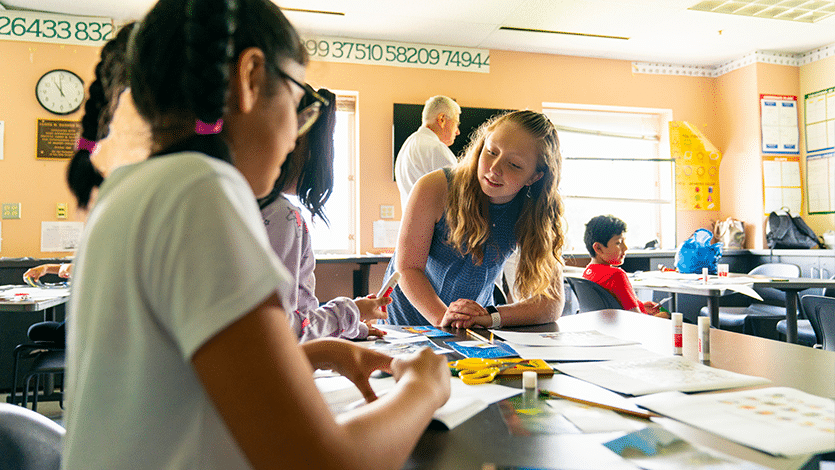
This article and photo originally appeared on the Marist website and are reprinted with permission.
Marist’s Education Department is well known for preparing students to become effective teachers and leaders in their schools and communities. Its programs emphasize the role of research and technology and the importance of critical thinking, creative problem solving, and multicultural and global perspectives. Consistent with Marist’s commitment to being actively engaged in the community, the Department recently hosted two groups of local schoolchildren in an effort to advance two worthy goals: exposing students from underrepresented groups to a college campus and encouraging them to consider teaching as a career.
On May 20, Marist welcomed a group of 20 English as a New Language (ENL) students in the third, fourth, and fifth grades at Balmville Elementary School, a public school in the Newburgh Enlarged City School District. The visit, the third in three years for students from Balmville, stems from the work of Professional Lecturer of Education Christina Wright Fields to promote the ideas of pursuing a college education and becoming a teacher. During their half-day visit to the College, the students toured the Marist campus, ate lunch, and participated in a session led by Fields and Assistant Professor of Education Mary Kelly in which they developed a storyboard from children’s literature; in past years, these faculty-led sessions have included tree identification and STEM educational hands-on activities. Notes Associate Dean for Teacher Education Edward Sullivan, “Essentially, we like to expose the Balmville grade-schoolers to various academic departments on campus to expand their knowledge base and present them with different educational possibilities. We also involve Marist education students in these visits to help the schoolchildren visualize themselves as future college students engaged in helping others to learn.”
09 Jul2019
By Brandon R.T. Frost
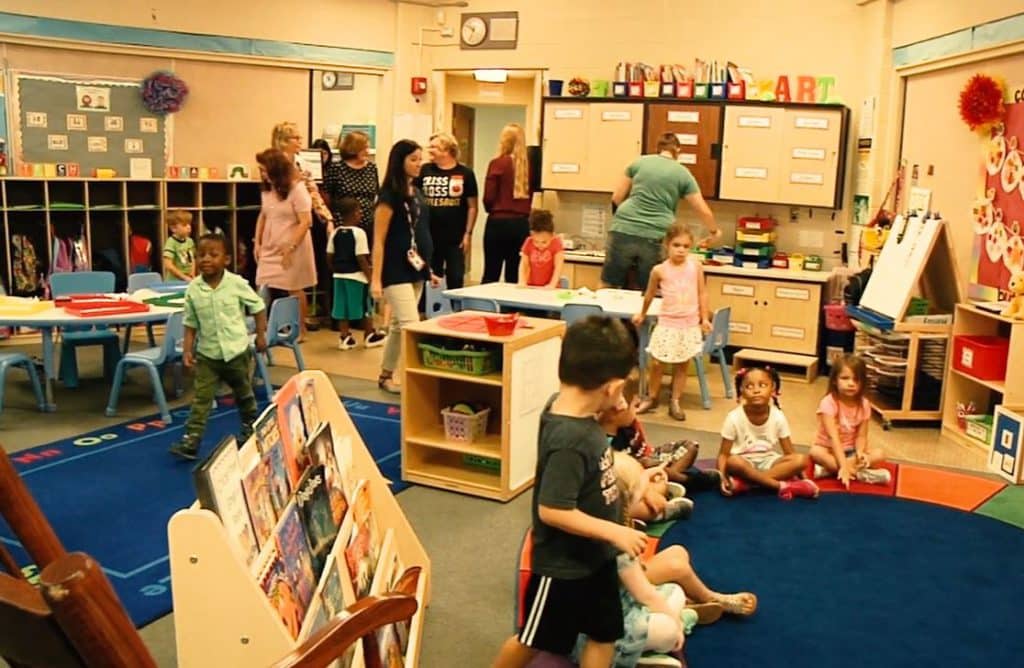
The Dual Licensure component of the Inclusive Early Childhood Program at Bowling Green State University (BGSU) supports teachers by improving their teaching craft and ensuring that teachers’ instructions remain relevant to their students.
Brenda Gift, the director of student services at Educational Services Center of Lake Erie West, applauds the program for providing high quality teachers who are eager to work in integrated classrooms. She further asserts that school districts are more likely to hire BGSU teacher candidates because of their dual licensure. Not only does the dual licensure indicate that teacher candidates can support all students, but it makes them marketable and competitive for hiring.
Some of the mentor teachers in partner school districts who support BGSU teacher candidates are BGSU alumni. Despite the responsibilities of being a classroom teacher, they value mentoring BGSU teacher candidates because they know how important it is to have an effective and supportive host teacher. The early childhood students benefit from teacher candidates because it provides a smaller teacher-to-student ratio. Teacher candidates agree that having proper training for inclusive education benefits them and the students they teach, assuring they are ready to instruct all learners once they enter the classroom.
To learn more, watch the What’s In It for Me? video highlighting BGSU’s Models of Inclusive Clinical Teacher Preparation, part of AACTE’s Research-to-Practice Spotlight Series.
28 Jun2019
By Brandon R.T. Frost
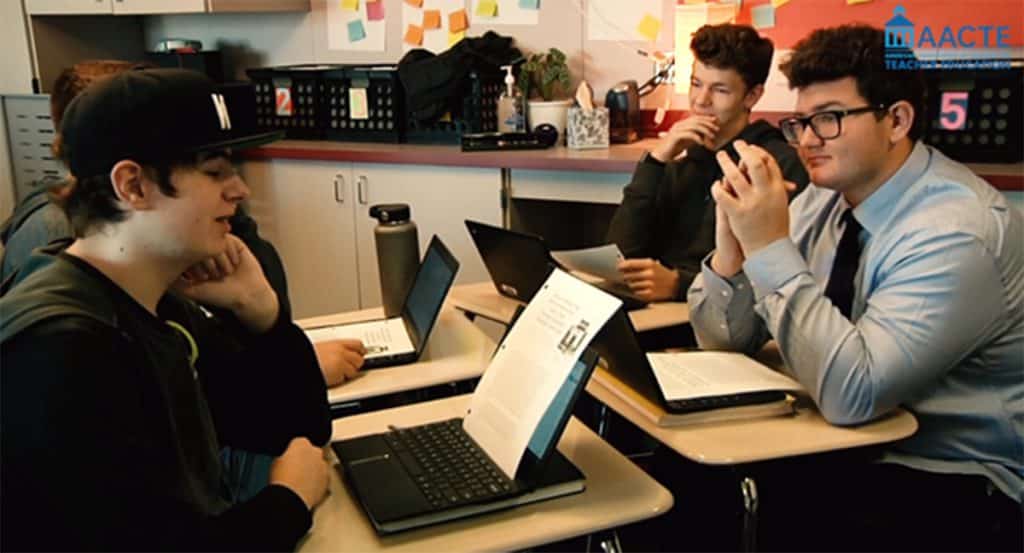
Empowering teachers to feel adequately prepared on their first day of teaching is the goal of Portland State University’s (PSU) Secondary Dual Education Program (SPED). As classrooms becomes more diverse, teachers need skills to address all students’ needs and make every student feel they are included in a positive community.
Andrew Gilford, assistant principal at Clackamas High School, believes the training and preparation his teachers receive from SPED enables them to meet the needs of all their students in the classroom. The program requires all teacher candidates to have two years of practice before entering the classroom. In particular, during the two years candidates engage in a combination of observation and student teaching. Michael Bowersox agrees that the two-year program allowed him to combine his coursework at PSU with classroom practice so that he is ready to be an effective teacher on the very first day as a teacher of record. Teacher candidates are matched with master teachers, learn to plan together, and develop the teaching skills to positively affect student achievement for all.
The highlight of PSU’s Dual Degree program is the training it provides its teacher candidates to be inclusive educators. “A characteristic of a successful classroom is the ability for everyone to feel included and have the opportunity to be included,” says Joseph Cornett, a graduate of PSU and a social studies teacher at David Douglas High School. He explains that the program taught him how to set up his students for success, work collaboratively with teachers, and navigate the school system and curriculum.
To learn more, view the video highlighting PSU’s Secondary Dual Education program, part of AACTE’s Research-to-Practice Spotlight Series.
27 Jun2019
By North Carolina State College of Education

The NC State College of Education and The Innovation Project have selected 19 N.C. High School Mathematics Master Teaching Fellows.
Supported by a five-year, $1.8 million grant from the National Science Foundation, this program will prepare, support and retain master teachers of mathematics from high-needs school districts across the state of North Carolina, and is a partnership between the NC State College of Education, The Innovation Project and seven school districts where the 19 fellows come from:
27 Jun2019
By Lynn M. Gangone

This article by President and CEO Lynn M. Gangone was originally published in the “Empowering Our Educators” supplement to USA Today and on the Education and Career News website. The article and photo are reprinted with permission.
Effective educators are developed, not born. Their preparation begins in colleges and schools of education and persists through the professional development during their careers. As the needs of student learners evolve, so too must our development of educators.
21 Jun2019
By Brandon R.T. Frost
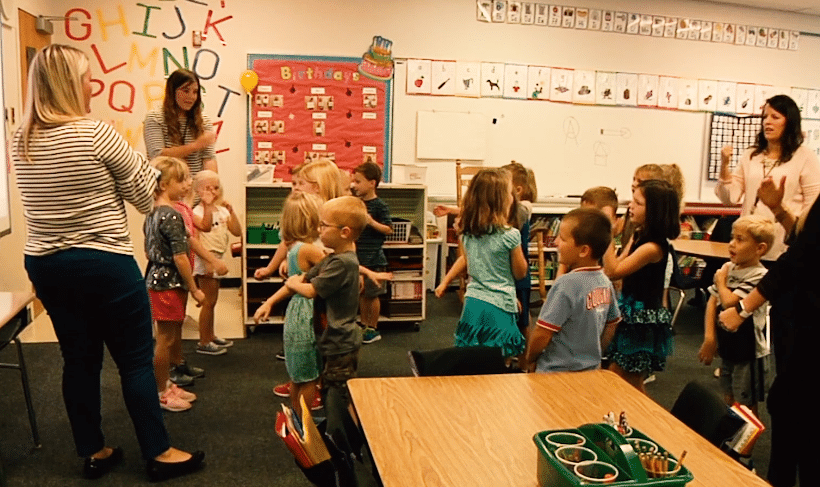
The Early Childhood Inclusive Education Program at Bowling Green State University (BGSU) prepares teachers to educate the youngest of school-age children with a solid foundation for learning. “This program is an example of innovation as it relates to making sure our students at the earliest stage have opportunities to develop and be successful in their lives,” says Rodney Rogers, president of Bowling Green State University. As a public university, BGSU sees itself as serving the public good and views the College of Education & Human Development as a place where all teacher candidates are prepared to meet the needs of their students. Teachers who graduate from the program are ready to enter the classrooms with the skills to accommodate all students.
12 Jun2019
By Prentice T. Chandler and Lisa Barron
 As co-editors, we are inviting you to submit a chapter proposal for the upcoming book, Rethinking School-University Partnerships: A New Way Forward, which will be published by Information Age Publishing. This volume will explore innovative ways in which colleges of education and education preparation providers (EPPs) engage with school partners to improve teacher education and educational outcomes for P-12 learners. The main focus of this book project is to extend the literature in this area and to learn from others around the country engaged in this important work. We are particularly interested in partnership work that addresses mutually beneficial outcomes and persistent issues/problems in teacher education.
As co-editors, we are inviting you to submit a chapter proposal for the upcoming book, Rethinking School-University Partnerships: A New Way Forward, which will be published by Information Age Publishing. This volume will explore innovative ways in which colleges of education and education preparation providers (EPPs) engage with school partners to improve teacher education and educational outcomes for P-12 learners. The main focus of this book project is to extend the literature in this area and to learn from others around the country engaged in this important work. We are particularly interested in partnership work that addresses mutually beneficial outcomes and persistent issues/problems in teacher education.
This book will provide educational leaders in public schools and colleges of education with insight, advice, and direction into the task of creating effective, proactive partnerships. In current times, colleges of education and local school districts need each other like never before. School districts struggle with pipeline-workforce, recruitment, and retention issues. Colleges of education face declining enrollment and a shifting educational landscape that fundamentally changes the way that teachers are trained and what local school districts expect their teachers to be able to do. It is with these overlapping constraints and converging interests that partnerships emerge as a strategy for strengthening the education of our teachers.
The partnerships that we envision are different from the ways in which colleges of education and school districts have traditionally worked with one another. In the past, these loose relationships centered primarily on student teaching and/or field experience placements. We conceptualize “new” partnerships as being proactive, mutually beneficial, pragmatic, and futures oriented. By focusing on people who are leaders in colleges/schools of education and local schools, this book will be well-positioned to help us develop a better understanding of how to initiate and lead change around the concept of partnerships.
10 Jun2019
By Jacqueline Rodriguez

I recently represented AACTE at the Next Educator Workforce: Asking the right questions conference, joining educators from across the country at the Arizona State University (ASU) Mary Lou Fulton Teachers College (MLFTC).
The ASU conference organizers asked the question: Why convene around the idea of the next education Workforce? The response included the following:
- Fewer people are entering the profession.
- More educators are leaving the profession early.
- Educators need more of the sustaining rewards of adult collaboration and efficacy.
Our challenge, according to ASU, is to build broad-based, multilateral partnerships that include colleges of education, schools, districts, and communities committed to designing and fielding new workforce models that make education work better for both educators and learners.
30 May2019
By New Mexico Highlands University
This article originally appeared on the New Mexico Highlands University website and is reprinted with permission.
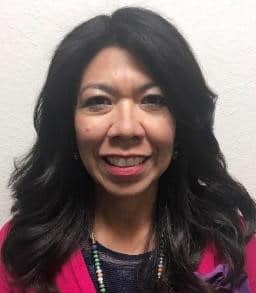 Elisabeth Valenzuela is the first coordinator for the Regional School Partnership, a collaboration among Pojoaque Valley Public Schools, Los Alamos National Laboratory and New Mexico Highlands University that aims to support improved teaching and learning.
Elisabeth Valenzuela is the first coordinator for the Regional School Partnership, a collaboration among Pojoaque Valley Public Schools, Los Alamos National Laboratory and New Mexico Highlands University that aims to support improved teaching and learning.
The innovative partnership, launched in October 2018, is the first of its kind in New Mexico to combine a school district, a major employer and a university teacher education program. It focuses on increasing success for youth in grades 4 through 8.
“The clinical residency program is the most exciting element of this new partnership,” Valenzuela said. “Pre-service teachers who are students in the Highlands School of Education will spend their junior and senior years working three days a week co-teaching a classroom in Pojoaque schools. These college students will work under the mentorship of a highly qualified teacher.”
Valenzuela said Los Alamos National Laboratory has a history of working with Northern New Mexico school districts to improve teaching and learning.
30 May2019
By Brandon R.T. Frost
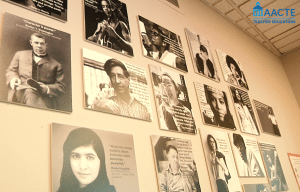
Portland State University’s Graduate School of Education offers a unique, two-year, full-time master’s degree in secondary dual education. In 2014, the Department of Curriculum and Instruction and the Department of Special Education joined together to meet the need of the surrounding communities to increase the number of teachers who are skilled in effective practices for a variety of students. Graduates of the program are equipped to implement inclusive and equitable practices.
“The secondary dual education program in the Graduate School of Education really represents, I think, innovation, collaboration, and equity and inclusion at its highest levels,” says Marvin Lynn, dean of the Graduate School of Education at Portland State University. This particular program was born out of need to ensure all teachers are meeting the needs of all students in the classroom. The emphasis on diversity and equity is part of the Graduate School of Education’s strategic mission as an access university.
30 May2019
By Jennifer Babich
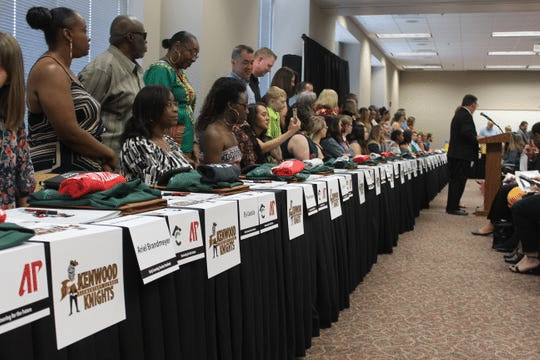
The first class of residents in the Early Learning Teacher Residence program, a partnership between Austin Peay State University and the Clarksville-Montgomery County School System, wait to sign their contracts on May 24, 2019. (Photo: Jennifer Babich)
This article and photo originally appeared in the Leaf Chronicle and are reprinted with permission.
These are not your typical college students.
Instead, they’re the first class of aspiring professionals embarking on a free three-year residency and degree program to turn themselves into teachers, as part of a partnership between Clarksville-Montgomery County Schools and Austin Peay State University.
24 May2019
By Brandon R.T. Frost
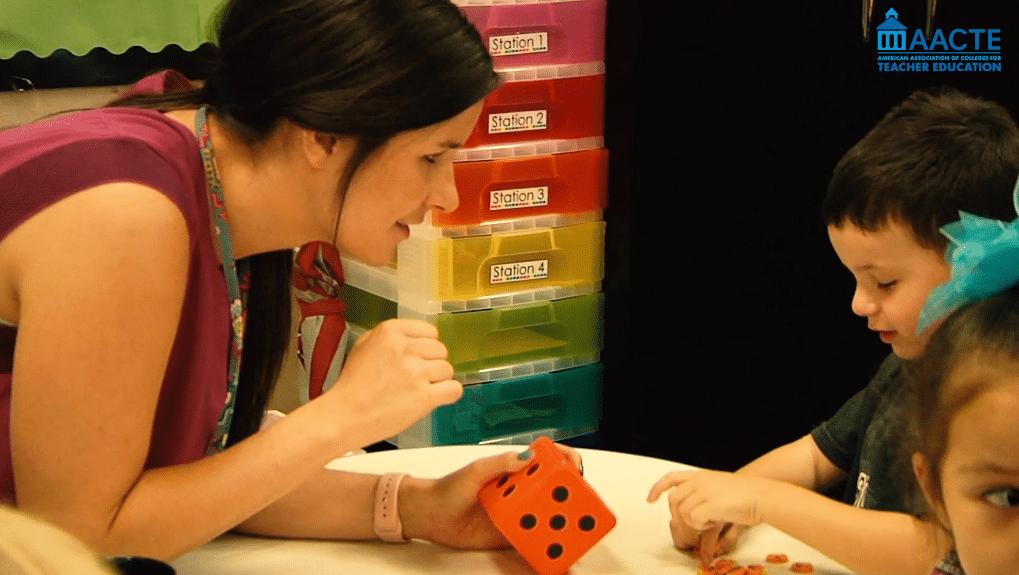
Bowling Green State University’s innovated Inclusive Early Childhood Education program seeks to address the need for teacher candidates to be well prepared to enter the classroom. BGSU recognized the importance of shifting their program to assist their teacher candidates in garnering the necessary teaching practices for a changing classroom environment. “We certainly have a wide array of learners with very diverse needs and one the things that this program helps us do is to ensure that we are graduating teachers that are ready to meet the needs of all those learners,” says Dawn Shinew, dean of the College of Education and Human Development at Bowling Green State University.
Every year, BGSU places over 900 teachers through 88 different partnerships with school districts throughout Ohio, which include both urban and rural districts and social service agencies. Teachers are expected to continue taking coursework during their clinical placements to ensure there is a connection among their coursework and their teacher training in the field. More importantly, BGSU believes teacher candidates should be exposed to the fieldwork earlier than what more traditional programs prescribe. Whereas other, more traditional programs place teacher candidates as student-teachers in their senior year of undergraduate studies, BGSU starts placing juniors in clinical settings with the hope to increase their exposure to their career and receive additional training in a variety of education settings, including special education and inclusive classrooms.
23 May2019
By Georgia Southern University
This article originally appeared on the Georgia Southern University website and is reprinted with permission.
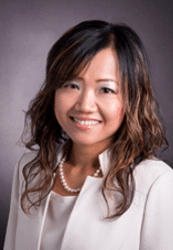 Georgia Southern University and Haven Elementary School are partnering to offer teachers a Gratifying Problem-Solving (GPS) program, which will provide educators unique monthly professional development based on the school’s current need for improved mathematics instruction.
Georgia Southern University and Haven Elementary School are partnering to offer teachers a Gratifying Problem-Solving (GPS) program, which will provide educators unique monthly professional development based on the school’s current need for improved mathematics instruction.
The College of Education’s Jackie Kim, associate professor of elementary and special education, serves as director for the project, totaling $74,976, which is funded by a Community Partnership Grant from the Governor’s Office of Student Achievement.
The GPS program uses a bottom-up approach, allowing the participants at Haven Elementary to help shape its development, workshop activities and directive.
“We go to find out what their inquiries and needs are and create a workshop based on the assessment,” said Kim. “We want to start with what they are currently doing in the classroom and change their practice to make instruction stronger yet doable.”
21 May2019
By Brandon R.T. Frost
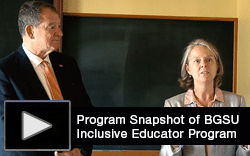 AACTE is excited to share the latest videos of its Research-to-Practice Spotlight Series on Special Education this spring. The video interviews feature faculty, students, and school district leaders who work with Portland State University (Portland, OR) and Bowling Green State University (Bowling Green, OH) to implement extensive clinical preparation for teacher candidates pursuing careers in general and special education. The link to view the video series is now available!
AACTE is excited to share the latest videos of its Research-to-Practice Spotlight Series on Special Education this spring. The video interviews feature faculty, students, and school district leaders who work with Portland State University (Portland, OR) and Bowling Green State University (Bowling Green, OH) to implement extensive clinical preparation for teacher candidates pursuing careers in general and special education. The link to view the video series is now available!
In my recent blog post, I shared a brief introduction to the new Research-to-Practice Spotlight Series. The videos highlight exemplary practices of the two teacher preparation programs for ensuring their candidates are ready to work with all students, including students with disabilities. Though different in many programmatic elements to address their local contexts, each university designed their programs to equip all teachers with the skills necessary to instruct the diverse needs of their student population.
The Master’s Program in Secondary Dual Education at Portland State University features dual certification in both general and special education at the secondary level. Entrants to the program come with an undergraduate degree in a content area and engage in two years of extensive and increasing involvement in clinical settings in secondary schools. Principals consider the program transformative in terms of the skills graduates bring to their classrooms.














 As co-editors, we are inviting you to submit a chapter proposal for the upcoming book, Rethinking School-University Partnerships: A New Way Forward, which will be published by Information Age Publishing. This volume will explore innovative ways in which colleges of education and education preparation providers (EPPs) engage with school partners to improve teacher education and educational outcomes for P-12 learners. The main focus of this book project is to extend the literature in this area and to learn from others around the country engaged in this important work. We are particularly interested in partnership work that addresses mutually beneficial outcomes and persistent issues/problems in teacher education.
As co-editors, we are inviting you to submit a chapter proposal for the upcoming book, Rethinking School-University Partnerships: A New Way Forward, which will be published by Information Age Publishing. This volume will explore innovative ways in which colleges of education and education preparation providers (EPPs) engage with school partners to improve teacher education and educational outcomes for P-12 learners. The main focus of this book project is to extend the literature in this area and to learn from others around the country engaged in this important work. We are particularly interested in partnership work that addresses mutually beneficial outcomes and persistent issues/problems in teacher education.
 Elisabeth Valenzuela is the first coordinator for the Regional School Partnership, a collaboration among Pojoaque Valley Public Schools, Los Alamos National Laboratory and New Mexico Highlands University that aims to support improved teaching and learning.
Elisabeth Valenzuela is the first coordinator for the Regional School Partnership, a collaboration among Pojoaque Valley Public Schools, Los Alamos National Laboratory and New Mexico Highlands University that aims to support improved teaching and learning.


 Georgia Southern University and Haven Elementary School are partnering to offer teachers a Gratifying Problem-Solving (GPS) program, which will provide educators unique monthly professional development based on the school’s current need for improved mathematics instruction.
Georgia Southern University and Haven Elementary School are partnering to offer teachers a Gratifying Problem-Solving (GPS) program, which will provide educators unique monthly professional development based on the school’s current need for improved mathematics instruction.